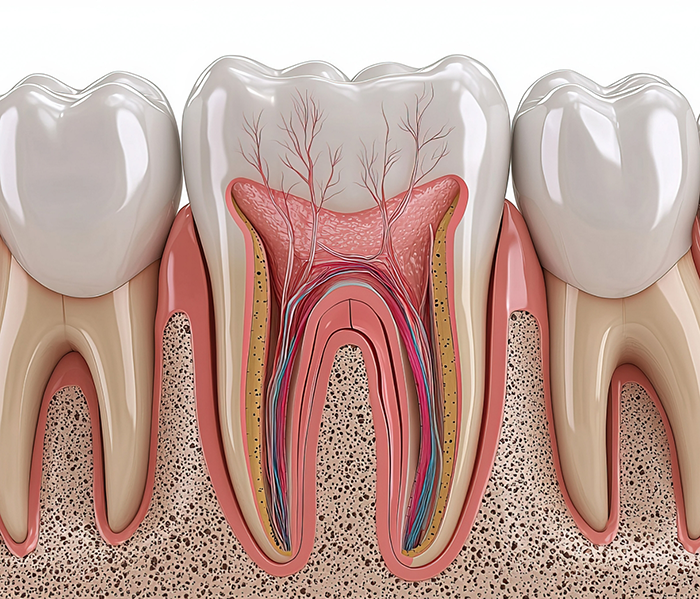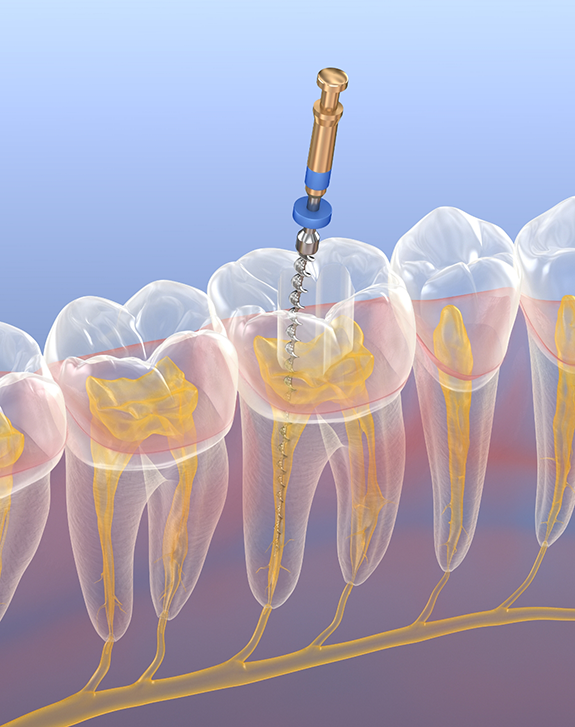Root Canal Treatment Tacoma
Getting to the Bottom of Your Tooth Pain

A root canal is an endodontic procedure used to treat infection or damage within the inner part of a tooth—called the pulp. The pulp contains the tooth’s nerves and blood vessels. This treatment aims to remove infected or damaged tissue, disinfect the tooth’s interior, and then seal it to prevent further issues, allowing the tooth to be preserved rather than extracted.
Root canals are performed by an endodontist, a specialist who has undergone an additional three years of postgraduate education and training to treat the complexities of root canal cases. Dr. Miller works closely with South Sound's highest regarded endodontic specialists and will coordinate your care with referrals, often the same day, to alleviate and treat your oral health needs.
Why Choose Commencement Bay Dentistry for Root Canal Treatment?
- We Work with Local Root Canal Experts
- We’ll Help You Maximize Your Insurance Benefits
- Same-Day Emergency Appointments Available
Why Is a Root Canal Done?

- To relieve pain and sensitivity caused by infected or inflamed pulp.
- To stop the spread of infection to surrounding tissues, which could lead to tooth loss or jawbone damage.
- To preserve the natural tooth, avoiding the need for extraction and replacement with a dental implant or bridge.
Common Reasons for Needing a Root Canal

- Deep tooth decay
- Cracks or fractures
- Repeated dental procedures
- Trauma to the tooth
What Happens During the Procedure?

- Numbing - Local anesthesia is applied to numb the area around the tooth. Nitrous oxide and/or conscious sedation may also be considered.
- Isolation -A rubber dental dam is used to keep the tooth dry and free from saliva.
- Access Opening - A small hole is made in the crown of the tooth to reach the pulp chamber and canals.
- Cleaning & Shaping - Infected or damaged pulp is removed. The canals are cleaned, shaped, and disinfected using special instruments and solutions.
- Filling - The empty canals are filled with a biocompatible material (usually gutta-percha). A filling is placed to seal the opening.
- Restoration - At a follow-up appointment, a permanent filling or crown is placed to restore strength and function.
Success Rate & Longevity

- Root canals have a high success rate with proper technique and follow-up care.
- Many root canal-treated teeth last a lifetime if restored properly and maintained with good oral hygiene.
- Longevity depends on a variety of factors, including the severity of original damage, presence of habits such as clenching and grinding, bone support and health, and maintenance through oral hygiene and dental cleanings and exams.
Alternatives to root canal treatment usually include tooth extraction, followed by the need for replacement via dental implant, bridge, or denture. However, preserving the natural tooth is usually more cost-effective and functionally beneficial when possible.

